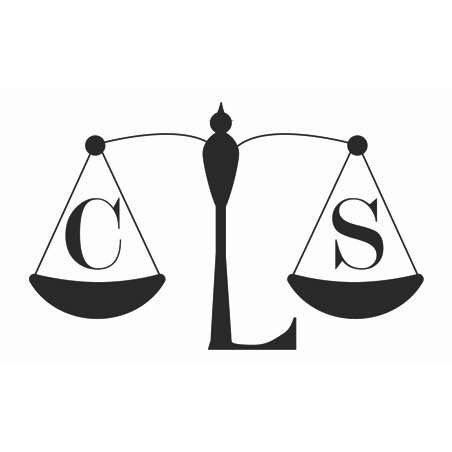Best Renewable & Alternative Energy Lawyers in Yemen
Share your needs with us, get contacted by law firms.
Free. Takes 2 min.
Or refine your search by selecting a city:
List of the best lawyers in Yemen
About Renewable & Alternative Energy Law in Yemen
Renewable and alternative energy are becoming increasingly important in Yemen due to the country's energy shortages and the adverse impact of fossil fuel reliance. The Yemeni government recognizes the potential of resources such as solar, wind, and biomass energy to meet growing energy demands sustainably and lower dependency on imported fuels. The legal landscape for renewable energy is evolving as authorities attempt to encourage investment, regulate safety standards, and facilitate integration into the national grid. Existing laws address licensing, land use, environmental controls, and incentives for both domestic and foreign investors participating in renewable energy initiatives.
Why You May Need a Lawyer
Engaging a legal professional with expertise in renewable and alternative energy matters can be crucial in several situations. Whether you are an investor planning to launch a renewable energy project, a community seeking to establish a small-scale solar system, or a business navigating compliance requirements, legal assistance ensures that your rights and interests are properly protected. Common scenarios where you might need a lawyer include:
- Securing permits or licenses for new energy projects
- Negotiating power purchase agreements or land leases
- Understanding tax incentives or government subsidies
- Addressing disputes regarding land use or grid connection
- Ensuring compliance with environmental and safety regulations
- Protecting intellectual property for innovative energy solutions
- Advising on international investment laws and joint ventures
Local Laws Overview
Yemen's legal framework for renewable and alternative energy consists of various national laws and regulations that govern the operation, development, and management of energy projects. Major aspects include:
- Licensing and Approvals: Renewable energy projects require permits from the Ministry of Electricity and Energy, and in some cases environmental assessments are mandated.
- Land Use: Developers must comply with land ownership and zoning requirements that may involve negotiation with private owners or local authorities.
- Environmental Compliance: Laws are in place to minimize the ecological impact of energy installations and promote sustainable practices, often requiring environmental impact studies.
- Investment Incentives: Yemen offers certain incentives and tax exemptions to encourage investment in renewable energy, particularly in rural and underserved regions.
- Grid Access and Infrastructure: Legal provisions allow for the integration of renewable energy into the national grid, subject to technical and safety standards.
- International Partnerships: Foreign investors are subject to additional regulations and may benefit from bilateral agreements that promote technology transfer and financing.
Frequently Asked Questions
What types of renewable energy are most common in Yemen?
Solar and wind energy are the most widely adopted renewable sources in Yemen due to abundant sunlight and suitable wind conditions in several regions.
Is it legal for private citizens to install solar panels on their properties?
Yes, private individuals can legally install solar systems for personal or commercial use, provided they adhere to safety and construction standards set by local authorities.
Do I need a permit to start a renewable energy project in Yemen?
Most renewable energy projects, especially those supplying the national grid or commercial operations, require permits and approvals from the Ministry of Electricity and Energy.
Are there any government incentives for investing in renewable energy?
The Yemeni government provides some incentives, such as tax exemptions and reduced tariffs on equipment, to encourage renewable energy development, though the details may vary based on project location and size.
What regulatory bodies oversee renewable energy in Yemen?
The primary authority is the Ministry of Electricity and Energy, supported by the Environmental Protection Authority and local municipal agencies where relevant.
How can foreign investors participate in Yemen's renewable energy sector?
Foreign investors can enter through joint ventures, direct investment, or public-private partnerships, but must comply with both general investment laws and specific energy sector regulations.
Is selling excess power from a private renewable energy system allowed?
In some cases, individuals or developers may sell excess power to the national grid, subject to governmental approval and compliance with technical requirements.
What environmental regulations apply to renewable energy projects?
Projects must undergo environmental impact assessments and adhere to regulations designed to mitigate environmental harm, especially in sensitive regions.
What are common legal challenges in the renewable energy sector?
Common issues include unclear land ownership, complex approval procedures, disputes over grid connections, and challenges in obtaining financing.
How can I resolve a dispute related to a renewable energy contract?
Disputes are typically resolved through negotiation, arbitration, or litigation, depending on the agreement terms and the parties involved. Legal counsel can guide you through the process.
Additional Resources
For guidance and support related to renewable and alternative energy law in Yemen, consider reaching out to the following:
- Ministry of Electricity and Energy - for permits, regulations, and project information
- Environmental Protection Authority - for environmental compliance and impact assessments
- General Investment Authority - for investment incentives and foreign participation
- Local NGOs focused on sustainable development and renewable energy education
- International organizations such as the United Nations Development Programme (UNDP) and World Bank offices active in Yemen's energy sector
Next Steps
If you are considering a renewable or alternative energy project or have legal questions in this area, start by gathering all relevant documents and project details. Research applicable laws and prepare a list of specific concerns or objectives. Seek out a lawyer or legal expert specialized in energy law within Yemen, who can offer tailored advice and facilitate interactions with governmental bodies. Early legal consultation increases the likelihood of project success, ensures compliance, and helps you avoid costly mistakes. Consider scheduling a consultation to discuss your situation in detail and explore your legal options moving forward.
Lawzana helps you find the best lawyers and law firms in Yemen through a curated and pre-screened list of qualified legal professionals. Our platform offers rankings and detailed profiles of attorneys and law firms, allowing you to compare based on practice areas, including Renewable & Alternative Energy, experience, and client feedback.
Each profile includes a description of the firm's areas of practice, client reviews, team members and partners, year of establishment, spoken languages, office locations, contact information, social media presence, and any published articles or resources. Most firms on our platform speak English and are experienced in both local and international legal matters.
Get a quote from top-rated law firms in Yemen — quickly, securely, and without unnecessary hassle.
Disclaimer:
The information provided on this page is for general informational purposes only and does not constitute legal advice. While we strive to ensure the accuracy and relevance of the content, legal information may change over time, and interpretations of the law can vary. You should always consult with a qualified legal professional for advice specific to your situation.
We disclaim all liability for actions taken or not taken based on the content of this page. If you believe any information is incorrect or outdated, please contact us, and we will review and update it where appropriate.
Browse renewable & alternative energy law firms by city in Yemen
Refine your search by selecting a city.









